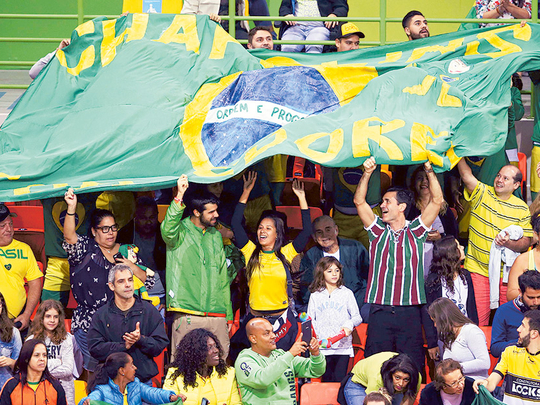
Rio de Janeiro: It’s been a long and difficult road for the Rio Olympics since winning the bid back in October 2009. At the time, the country was thriving, but it has since been thwarted by a major economic recession in 2014 and subsequent political unrest.
In January of this year, it was announced that Rio’s organisers were facing budget issues and were scaling back in an effort to save $500 million from the spending. A couple of months later, the Zika virus hit and there were rumours that Brazil was going to have to cancel the Olympics altogether.
Add that to the reports that the city was not prepared in terms of security, that the buildings and venues weren’t ready and that many athletes were deciding not to compete on the basis that it simply wouldn’t be safe, and the Rio Olympics looked like it was set for disaster.
Fast forward to today — and the reality couldn’t be more different. Down at Barra Olympic Park, a large compound which houses nine venues (including the velodrome and two aquatics venues), the atmosphere is bustling with thousands of people milling around, making their way to their next event with flags draped over their shoulders or painted on their faces. Throughout the day, crowds sit at picnic tables in the centre of the park, passing the time with food and drinks, meeting friends, watching events live on big screens.
Cheers and roars explode from the stadiums so that, wherever you are and whatever you are doing, you can literally feel the energy and the excitement of the wins and the losses, the medals being won and the new world records being made just a few metres away.
Concession stands are making a killing and a huge warehouse-type souvenir store is packed from morning till night with people buying up Olympics Havianas, Lego sets and other mementos to take home. Generally people look happy, thanks to the vast numbers of volunteers and staff working at the event making sure that everything runs smoothly and quickly.
The same can be said of the other venues. Despite the heavy level of security — ticket checks, followed by X-ray machines for bags, followed by a second round of ticket checks — each event has ample people working on it to make sure that queues get processed quickly and visitors are kept moving.
The passion, commitment and pride of the Brazilians who have turned out in force to support the Rio Olympics is commendable. There are 45,000 volunteers working tirelessly from morning till night — in the stadia, in the streets, at the airport … Everywhere you go, there are teams of helpers dedicating their time and energy into making sure that the Rio 2016 Olympics are a success.
Leonardo, a young Brazilian volunteer, said: “The people of Brazil were worried that our Olympics wouldn’t be good. We watch other sports events in other countries on TV and we can see how good they are and we wanted the Olympics in Rio to be good too. That’s why I am here. I am volunteering for two weeks, working at the tennis stadium, telling the media crews where they can go and helping them. It’s a great opportunity to be part of it.”
Leonardo should be proud, as indeed should all Brazilians. Despite all their setbacks, they have pulled off a successful and fantastic event so far. Which is one in the face for the haters out there who thought they couldn’t do it!
— The author is the editor of sister publication Aquarius magazine











